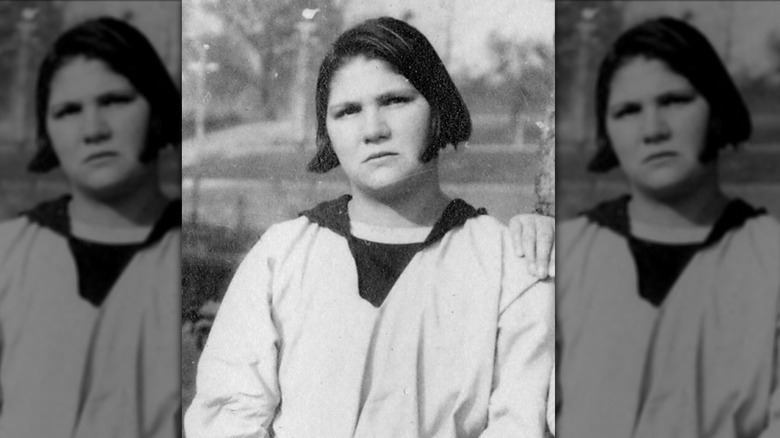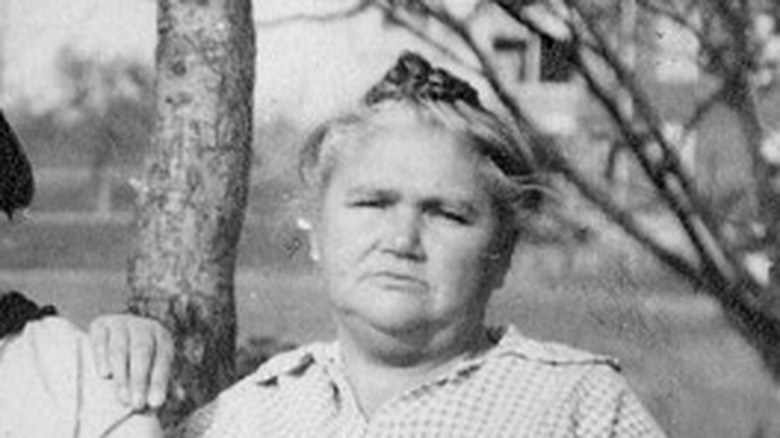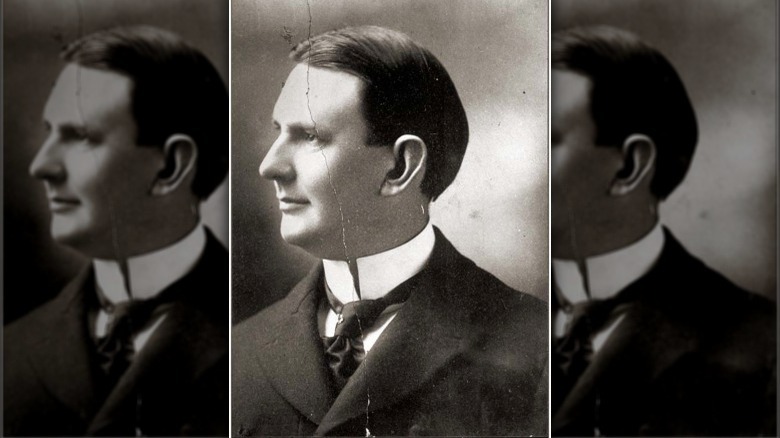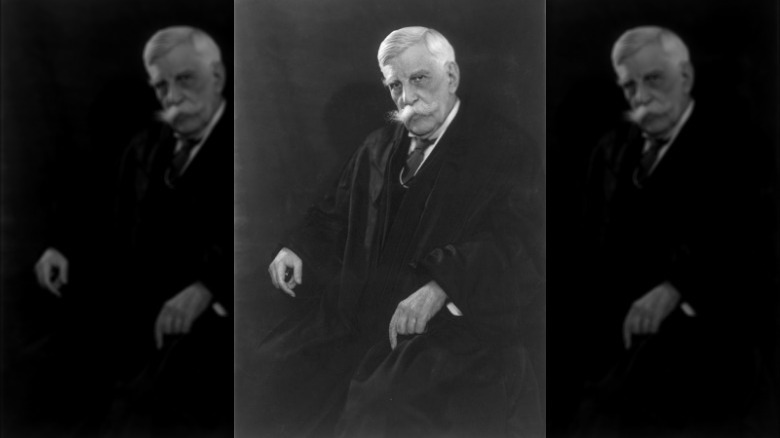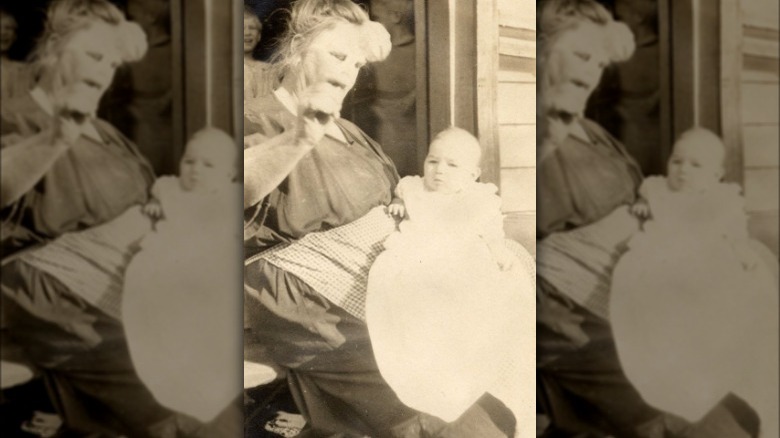'Three Generations Of Imbeciles': Carrie Buck And The Fight Against Legal Eugenics
The United States was founded on the notion that, at least in principle, everyone has the right to determine their own path in life and live freely as an individual however they see fit. As any student of American history is well aware, the United States has fallen short of those lofty ideals on several occasions, such as in the institution of slavery or the failure to allow American women to vote until the Second Amendment. Another dark chapter in U.S. history is involuntary sterilization, which was based on outdated eugenic principles. According to Lutz Kaelber, associate professor of sociology at the University of Vermont, it was at one time allowed in more than 30 U.S. states,
Beginning in 1907 — and in a perversion of Charles Darwin's theory of natural selection — eugenicists believed that to ensure the health and well-being of humanity, mental health challenges, developmental delays, and other issues should be ferreted out of the human population through compulsory sterilization. In a contradiction, eugenic ideas were often championed by progressive thinkers of the era, per Philip R Reilly's "Eugenics and Involuntary Sterilization: 1907-2015," published in the Annual Review of Genomics and Human Genetics. One key battle in the history of legalized involuntary sterilization law in the U.S. came in 1927 when the Buck v. Bell case was heard by the Supreme Court.
Carrie Buck, pictured above, was the plaintiff in the case, and at that time, the Supreme Court stated that Virginia's sterilization laws could stand. This decision had a far-reaching impact, felt as far away as Nazi Germany (via NPR).
Carrie Buck experienced sexual assault as a young woman
Born in 1906, in Virginia, Carrie Buck had what might be described today as a traumatic upbringing. Buck's father died when she was young, and at the young age of 3, her mother entered the Virginia State Colony for Epileptics and Feeble-Minded. At this point, she was placed in foster care. Then, like now, the exact definition of feeblemindedness was unclear, and Encyclopedia Virginia says Buck's mother, Emma (pictured), was likely institutionalized — like Buck would one day be — for perceptions of her sexual behavior.
In foster care from a young age, Buck was sexually assaulted and became pregnant in 1923, after which time she, too, was institutionalized in the same place her mother was after she received an epileptic and feeble-minded diagnosis. At that time, "feeble-mindedness" was so broad as to encompass alcohol addiction, but Buck was likely deemed so because she became pregnant out of wedlock in what she described as rape. Buck's daughter, Vivian Alice Elaine Buck, was born in 1924 and sent to live with Buck's former foster family.
Shortly after that time, administrators at the Virginia State Colony for Epileptics and Feeble-Minded, who reportedly supported eugenic principles, believed Buck could be a perfect testing ground for the state's recently passed compulsory sterilization laws. The case, one day known as Buck v. Bell, then made its way through the Virginia court system. (Bell referring to John H. Bell, the superintendent of the institution in which Buck was housed.)
Virginia's compulsory sterilization law was upheld
At the time the Carrie Buck case was filed, Dr. Albert S. Priddy was the superintendent at the Virginia State Colony for Epileptics and Feeble-Minded. Following his death, Priddy (pictured) was succeeded by John H. Bell. According to Priddy in his 1924 petition, though physically healthy, Buck was "unfit to exercise the proper duties of motherhood" due to what he called her anti-social conduct and mental defectiveness, which in the view of eugenicists of the era were hereditary and would inevitably pass down to her children.
Once sterilized, though, Buck might even be able to leave and function outside the Virginia institution, Priddy wrote. Once upheld by the Virginia State court system, Buck v. Bell was finally heard in the U.S. Supreme Court in 1927. Many who testified in these early court hearings never knew Buck, and an example of the so-called "anti-social" behavior she is said to have engaged in at the age of 9 or 10 was passing notes to boys in school. While still in the Virginia court system, Harry Laughlin and A.H. Estabrook — from the Carnegie Institution's Eugenics Record Office in New York state — provided testimonies in which the Buck family was called "shiftless, ignorant, and worthless." Buck was also said to belong to a class of "anti-social whites of the South."
Buck was sterilized through salpingectomy
After passing through the Virginia court system, Buck v. Bell was heard by the U.S. Supreme Court. Associate Justice Oliver Wendell Holmes Jr. (pictured) was on the court at that time, and in his majority opinion, he provided perhaps the most long-lasting and chilling quotes of the eugenics era. Referring to Carrie Buck's mother, Emma, as well as Buck and her daughter, Vivian — who was deemed "not quite normal" at the age of 6 months, according to the University of Virginia — Holmes Jr. wrote: "It is better for all the world, if instead of waiting to execute degenerate offspring for crime or to let them starve for their imbecility, society can prevent those who are manifestly unfit from continuing their kind."
Holmes Jr. added to that statement: "Three generations of imbeciles are enough." Adam Cohen, author of "Imbeciles," a book about the Buck case, spoke to NPR in 2016 about the method by which Buck was sterilized (salpingectomy, or fallopian tube cauterization). "[T]hey cauterized the path that the egg takes toward fertilization," Cohen said. For this reason, he said, when women were sterilized, it was "not minor surgery and when you read about what happened, it's many, many days of recovery and it had certain dangers attached to it, and a lot of the science was still quite new." At that time, he said many women were not informed of what was about to happen to them before the procedure took place.
An estimated 60,000 U.S. citizens were sterilized
With Virginia's involuntary sterilization laws upheld by the Supreme Court of the United States, similar eugenic laws continued to spread throughout the country. Certain states continued to sterilize their residents into the late 1970s, most of whom, like Carrie Buck, were from marginalized or underprivileged populations. In the 1930s, the rising National Socialist (Nazi) party of Germany took notice of America's eugenics programs, after which they patterned their own. This led to some 350,000 involuntary sterilizations under Nazi rule.
As word spread of Nazi atrocities after World War II, eugenics principles were reconsidered in the U.S. Still, according to The Eugenics Archives, West Virginia had enforced sterilization laws on their books until 2013 when a unanimous vote in the House of Delegates repealed the law. California repealed its involuntary sterilization law in 1979, and in 2021, the state launched a compensation program for eligible survivors. At that time, then California Governor Gavin Newsom said (via CA.gov): "While we can never fully make amends for what they've endured, the state will do all it can to ensure survivors of wrongful sterilization receive compensation."
Carrie Buck lived until 1983
After Carrie Buck's involuntary sterilization in 1927, she was released from the Virginia State Colony for Epileptics and would go on to marry twice in her lifetime. She died in 1983, and her daughter, Vivian, from whom she was separated at a young age, is buried nearby her. (Vivian is pictured as an infant above with her foster mother). Anecdotal evidence suggests that neither Buck nor her daughter truly faced any mental, developmental, or cognitive challenges, contradicting court testimony in the Buck v. Bell court hearings. In total, as many as 8,300 Virginia residents, including Buck's own half-sister, were sterilized under the state law, which was only repealed in 1972.
On the legacy of Buck v. Bell and involuntary sterilization laws in the U.S., author and scholar Adam Cohen told NPR that in addition to those sterilized, "We have to factor in all the many people who were being segregated, who were being held in these institutions for eugenic reasons, because they were feebleminded, whose lives unfolded living in places like the colony, rather than living in freedom." Buck v. Bell tarnished the Supreme Court's reputation, Cohen said. "[T]here was something just so ugly about this decision and when [we] think about what we want the Supreme Court to be, what the founders wanted the Supreme Court to be, it was supposed to be our temple of justice, the place that people could go when all the other parts of our society, all the other parts of the government, were not treating them right."
If you or anyone you know has been a victim of sexual assault, help is available. Visit the Rape, Abuse & Incest National Network website or contact RAINN's National Helpline at 1-800-656-HOPE (4673).
